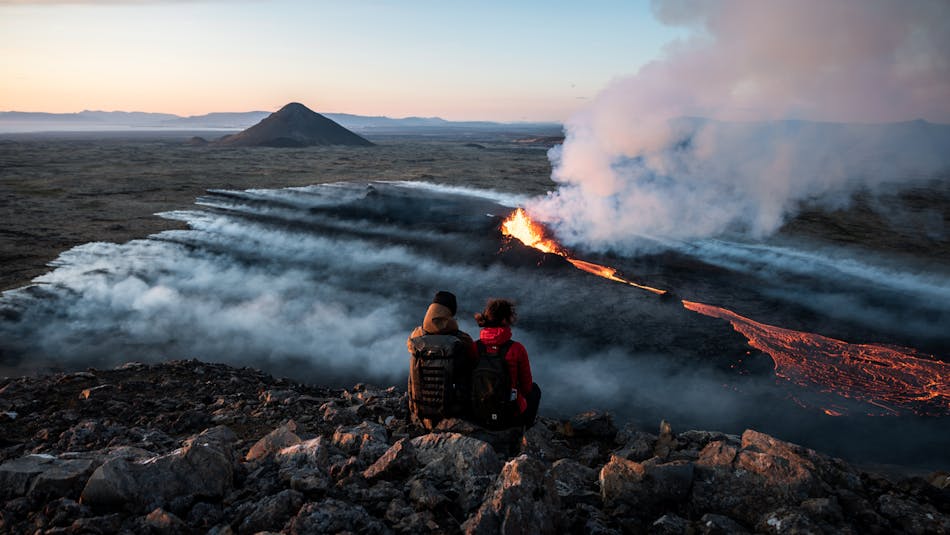
Iceland’s meteorological office says it may only get “a 30-minute warning” if the Fagradalsfjall volcano erupts. The volcanic system is located in the island’s southeastern part, near the coastal town Grindavik and its famous tourist attraction, the Blue Lagoon geothermal spa. Several tremors have been recorded recently, including more than 1,000 on Monday, and officials are preparing for the worst.
An eruption from the volcano could threaten aircraft and cause travel disruptions. If ingested in sufficient quantities, volcanic ash can cause jet engines to fail and stall. Accuweather says the latest volcanic activity could affect air travel across Europe and beyond, depending on how much ash is released and where the wind blows it.
The government has evacuated residents from the area, and a team is erecting a wall around a geothermal power plant to defend against lava. Officials are also attempting to limit the amount of ash blown into the sea.
Scientists have spotted a magma tunnel, and the country is on edge over fears of a major eruption. The country has 33 active volcano systems and has seen its fair share of volcanic eruptions, including in 2010, when a volcanic ash cloud disrupted international flights and affected millions.
However, the southeastern region of the island is especially susceptible to volcanic activity. It sits on a tectonic plate boundary between North America and Eurasia, so magma seeps up from the Earth’s mantle through cracks in the crust. As a result, the island experiences frequent earthquakes and volcanic eruptions.
An eruption of the volcanic system could cause a lava flow that could damage houses, roads, and power lines. Iceland is accustomed to volcanic eruptions, but they usually occur in the wilderness, away from populated areas. The Bardarbunga volcanic system in the middle of the island erupted in 2014, producing lava that covered 84 square kilometers of highland but didn’t threaten any communities. And in 2021, the Fagradalsfjall volcanic system erupted for the first time in 6,000 years.
The eruption would likely hit the Blue Lagoon first, attracting thousands of tourists yearly, but could spread ash into a larger area if it is explosive. The southeastern region of the island is also the wettest part of the country, and heavy rain would slow down any lava flow.
Meanwhile, the founders of OpenAI have agreed to allow Sam Altman to return as CEO after a long weekend of negotiations. In a post on X, the company said it has “agreed in principle for Sam to return as CEO with a new initial board of Bret Taylor (Chair), Larry Summers, and Adam D’Angelo.” The move comes after nearly all of the company’s employees threatened to quit over Altman’s ouster last week. Several of them had reportedly signed a letter to the board demanding that Altman be reinstated.